By: Ilaria Chiavacci
Photos:
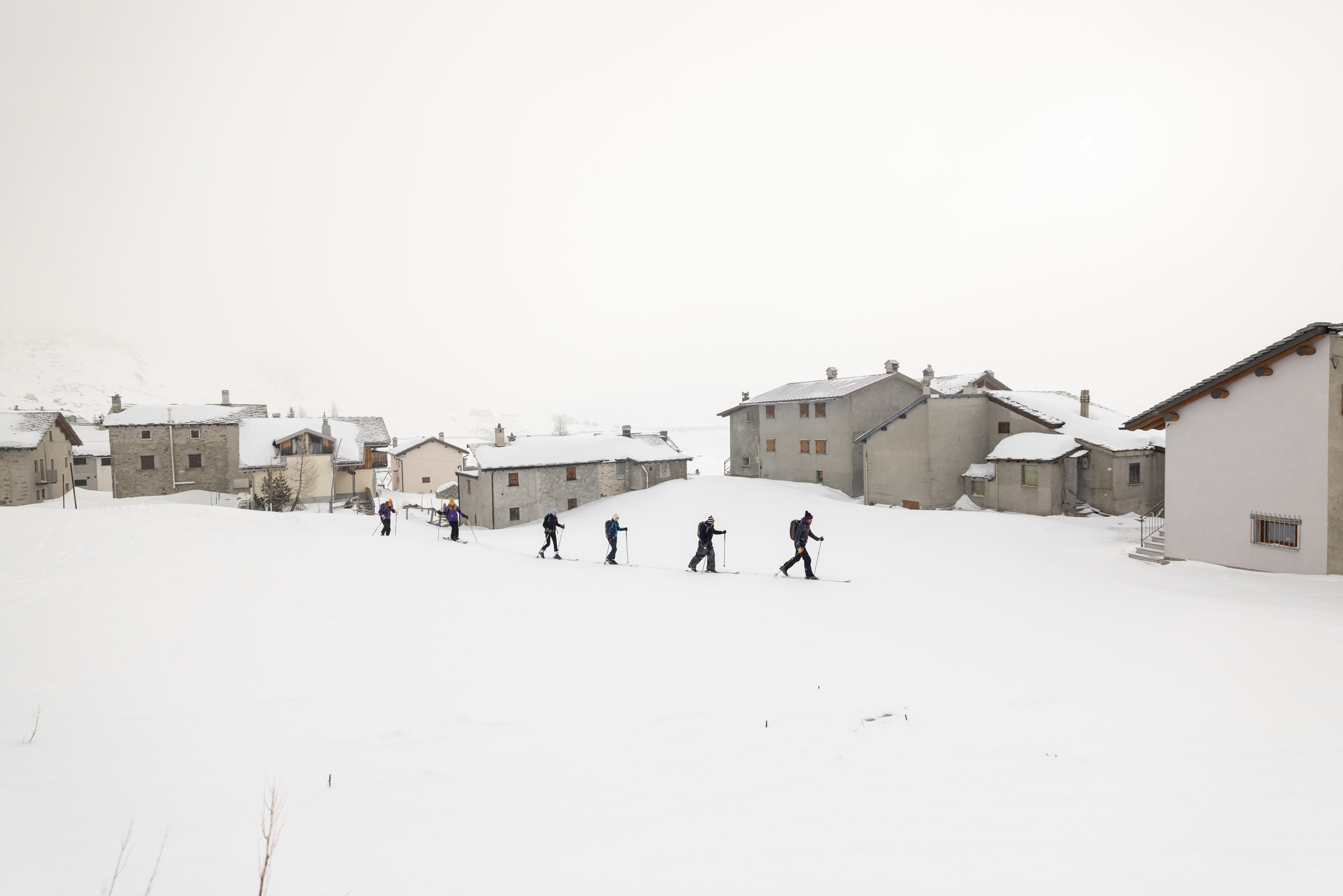
By: Ilaria Chiavacci
Photos:
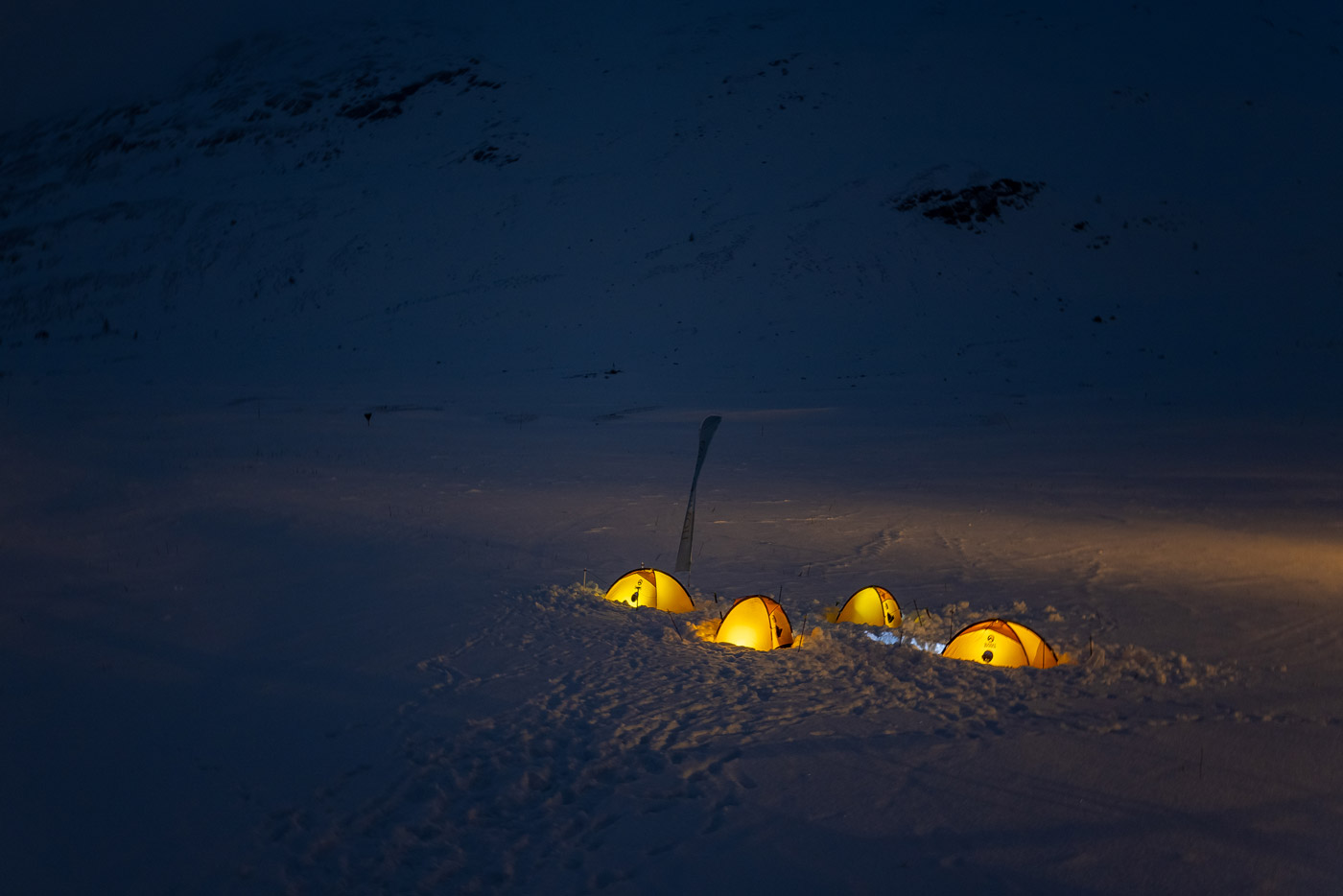
Sleeping in a base camp like in Pakistan and leaving with skins in the morning, at Montespluga in Valchiavenna, tourism is wild
There are no ski lifts and no noisy aprés-ski, no groomed trails, no snow cannons or signs with directions, other than those for the trails that you take in summer. There are not even any trees if you look closely, despite the fact that the altitude is not that extreme, as the Spluga Pass does not reach 2,000 meters. There is also a lonely road, which in the middle of winter is no longer cleaned with summer diligence, often leaving the pass isolated.In short, we are on the border between Italy and Switzerland, a little more than two hours from Milan, but the feeling is that of being in a remote, out-of-this-world place. Montespluga in winter is totally uninhabited: the hotels and restaurants that are there are all closed and, after a heavy snowfall, the panorama that opens up over the dam that separates it from Madesimo recalls scenarios a la Fargo, the Coen brothers’ film. Italian valleys are usually narrow, with sharp peaks and endless forests: here the glacial dam leaves a totally white open space, which is unusual for our landscapes-perhaps that is why with a little imagination one feels in Minnesota, or Alaska. There is nothing but snow for a while, or so it seems: in fact, life begins again just after the dam and the Amphossi plateau, but you can’t see it from here. That’s why Tomaso Luzzana, the founder of outdoor communications and events company SpiaGames, thought of building the headquarters of
Homeland
which proposes itself, for all intents and purposes, as the first area without facilities in Italy.
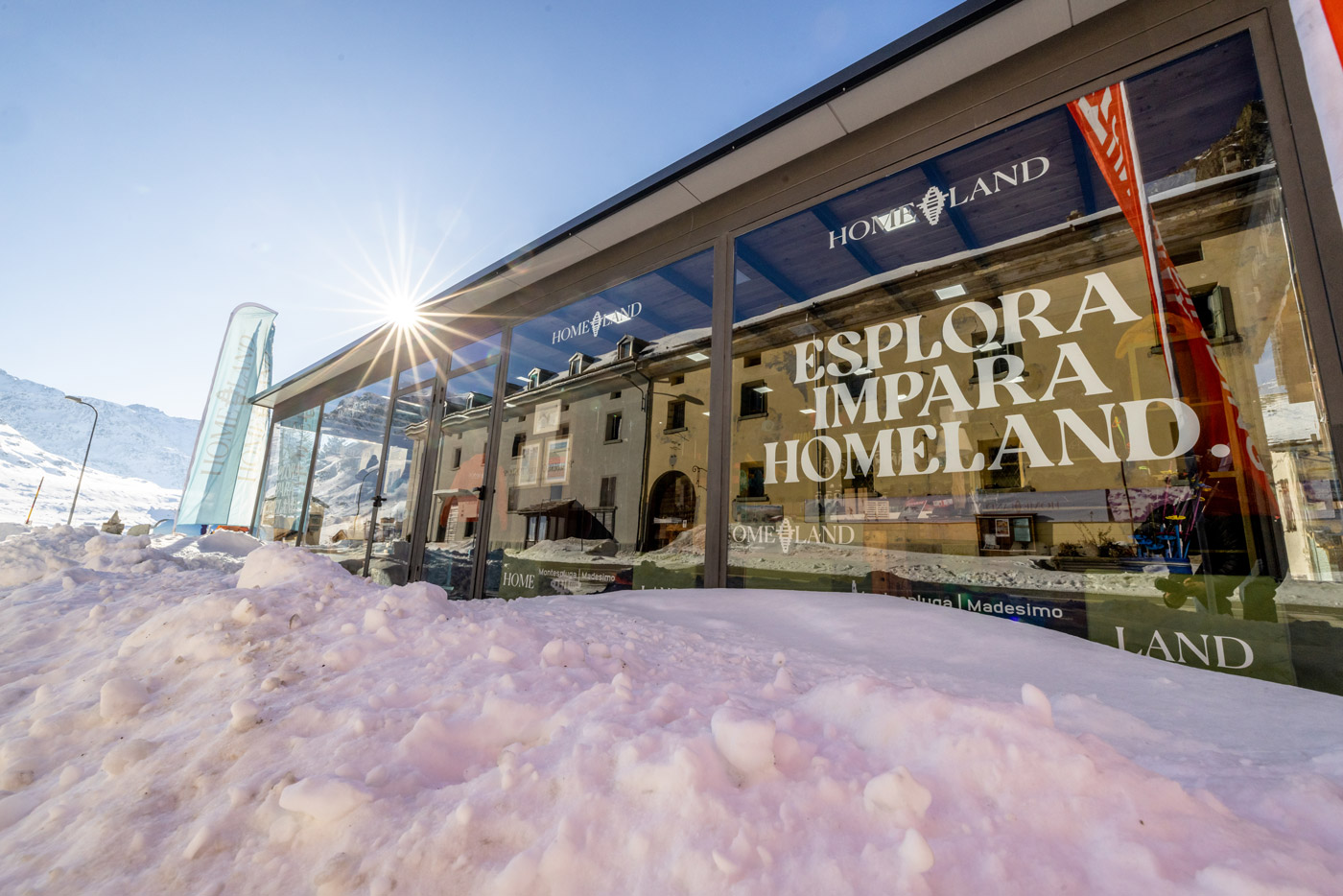
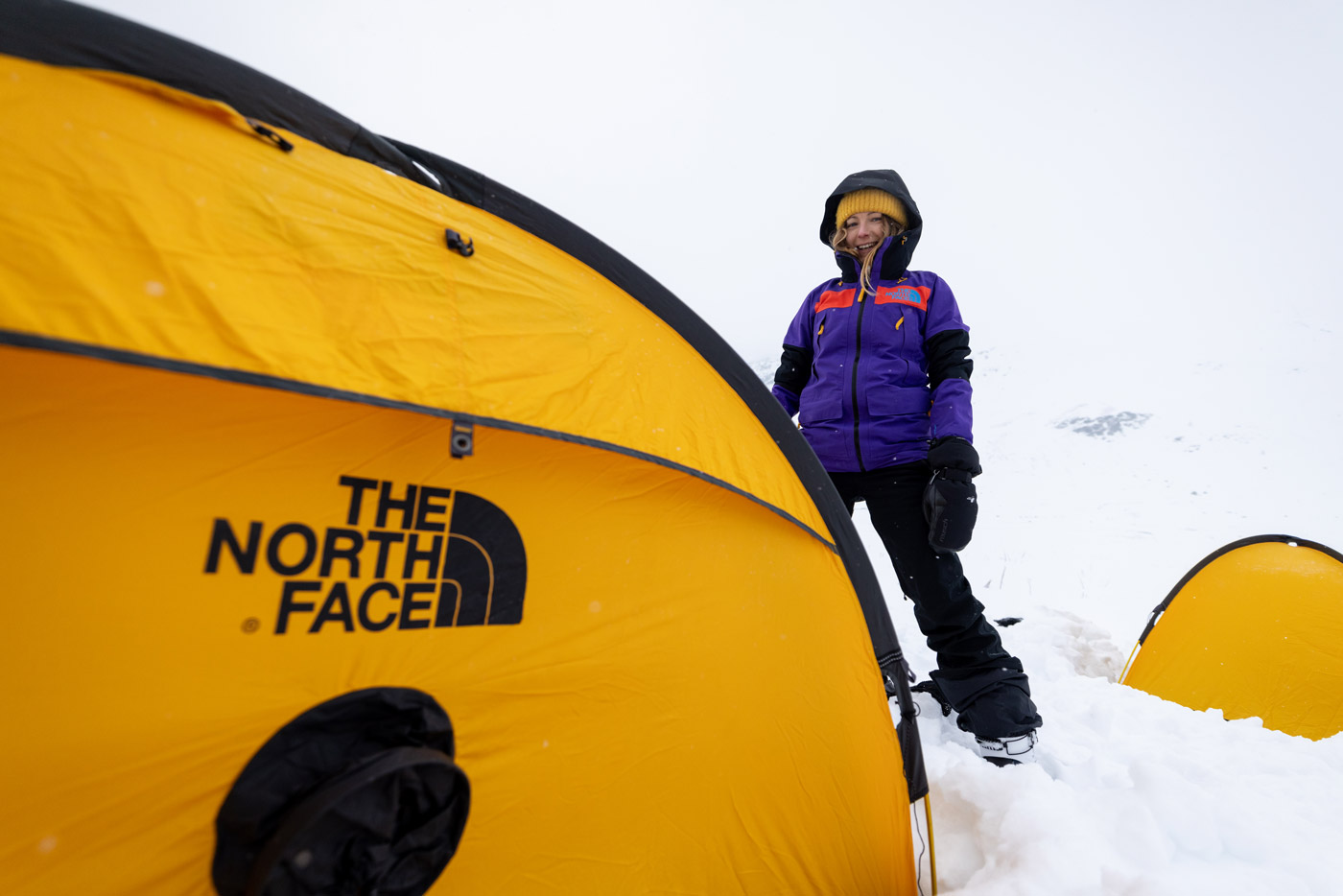
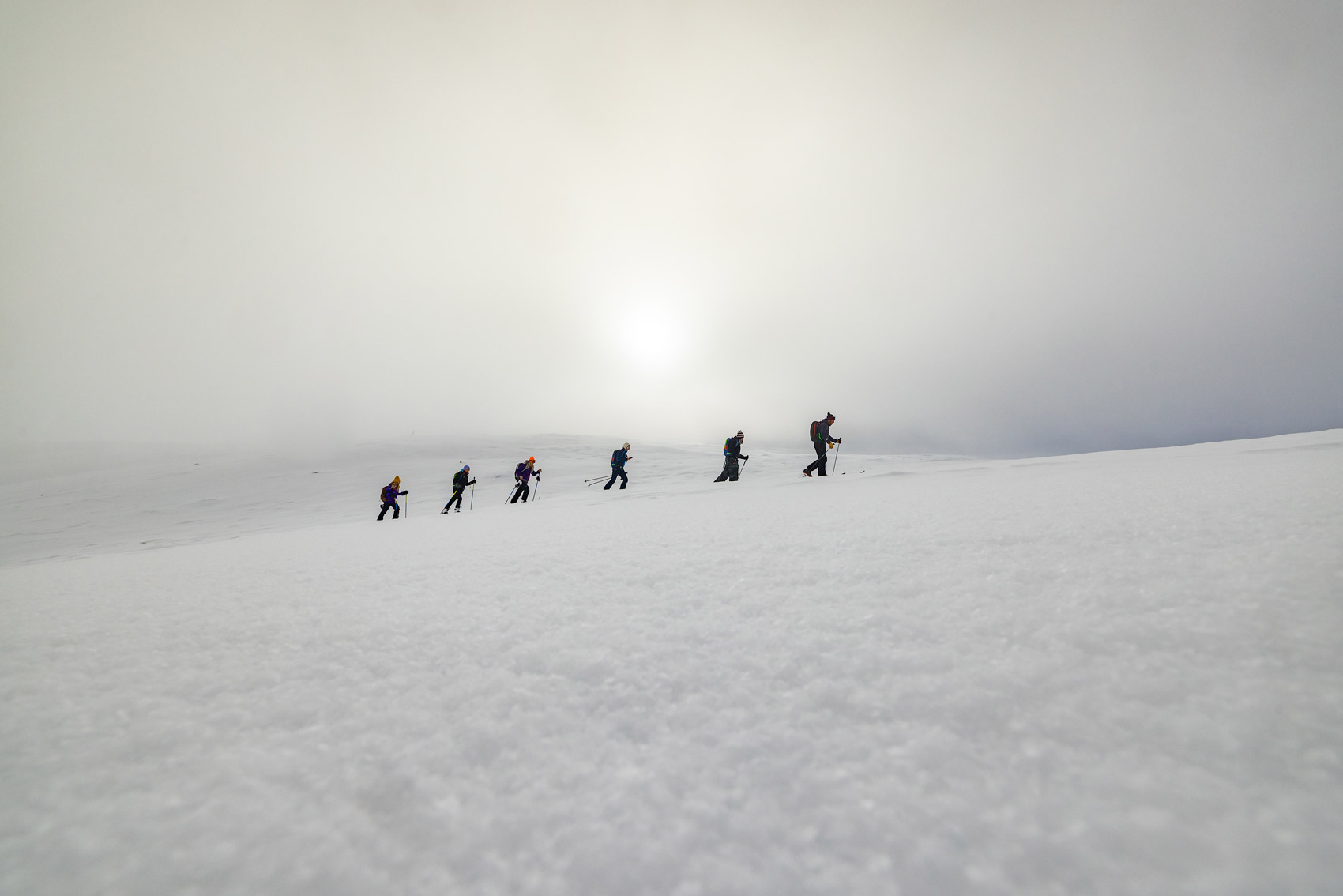
Tomaso is yes a man of the mountains, but also a man of business, and therefore able to pick up on market movements in advance, before they are concluded. Ski mountaineering is carving out an increasingly large space in the hearts of mountain enthusiasts who, thanks in part to restrictions during the pandemic years, have increasingly begun to frequent a discipline that until a few years ago was considered perhaps too extreme, the preserve of mountaineers and freeriders only. The numbers for the winter of two years ago, on the other hand, say that while alpine skiing has increased, ski mountaineering has tripled: of course, that’s because fewer people used to do it before, but ski mountaineering enthusiasts are beginning to no longer be a niche. The world of mountains and ski resorts itself is changing: the ever-increasing cost of ski passes and the problems associated with drought and snowmaking are bringing out an increasingly clear need to enjoy the mountains more freely and purely. And while mountain resorts still make their living mainly from tourism related to skiing and snowboarding on the slopes, there is an increasing need to find alternative models of mountain enjoyment to just going to the resorts. Lack of snow and economic hardship are two crucial factors in explaining the growing success of ski mountaineering, but many people had dress rehearsals in past winters, when the lifts were closed but the slopes groomed: those who could got the equipment to go up and then down the slopes. Today, with lifts reopened, in Italy this is allowed only in those ski areas that have slopes specifically for ascending: realities that are increasing but are not as widespread.
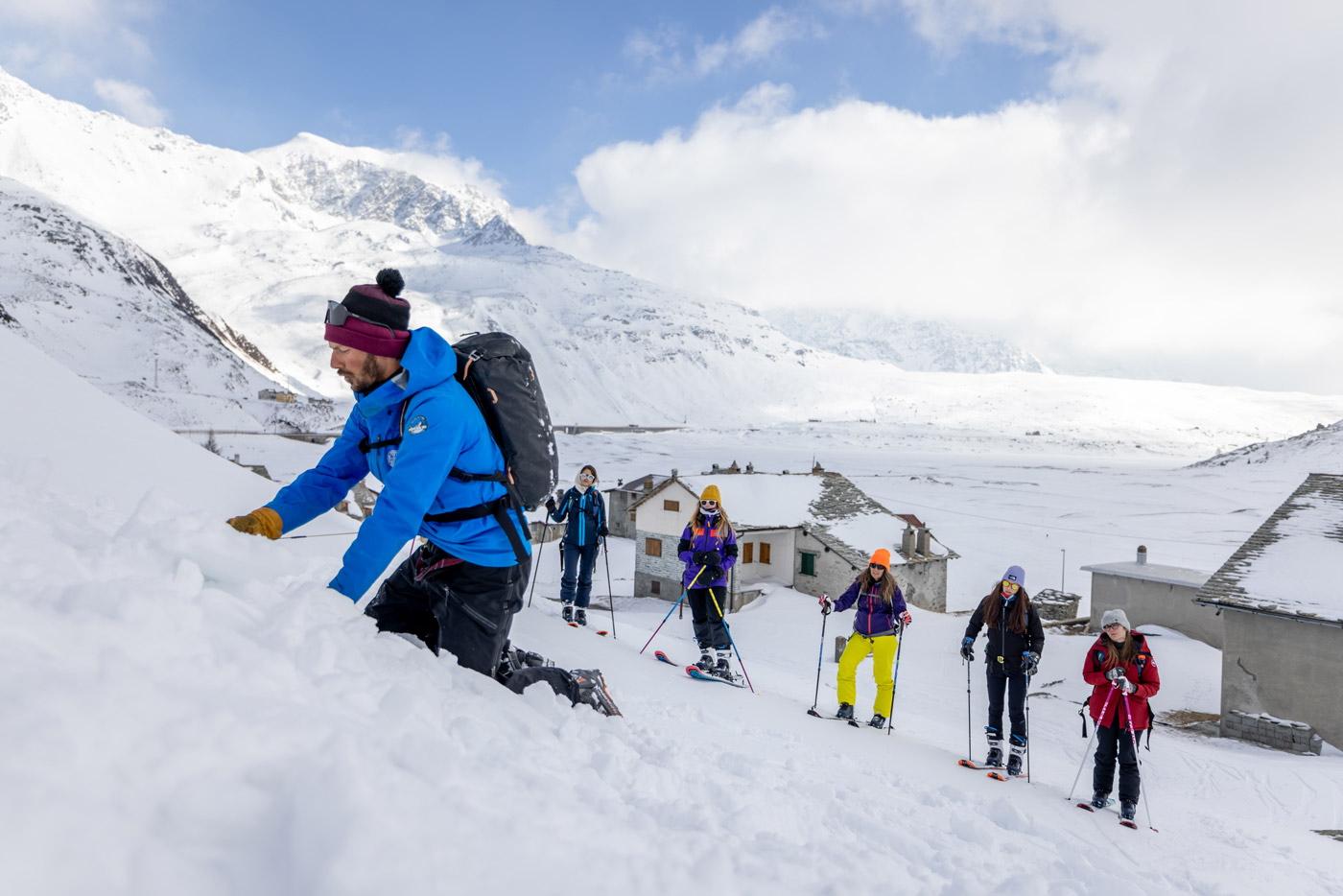
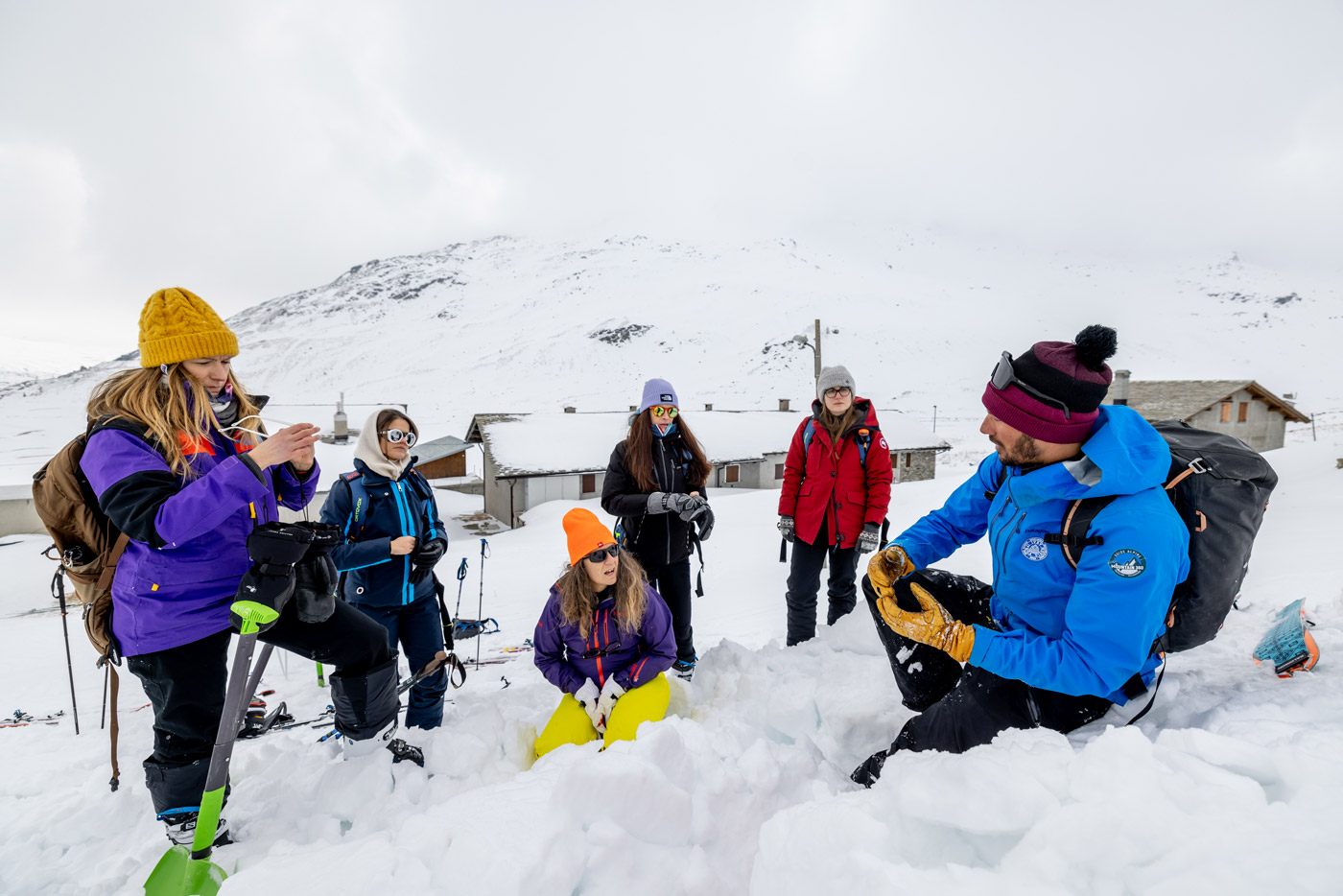
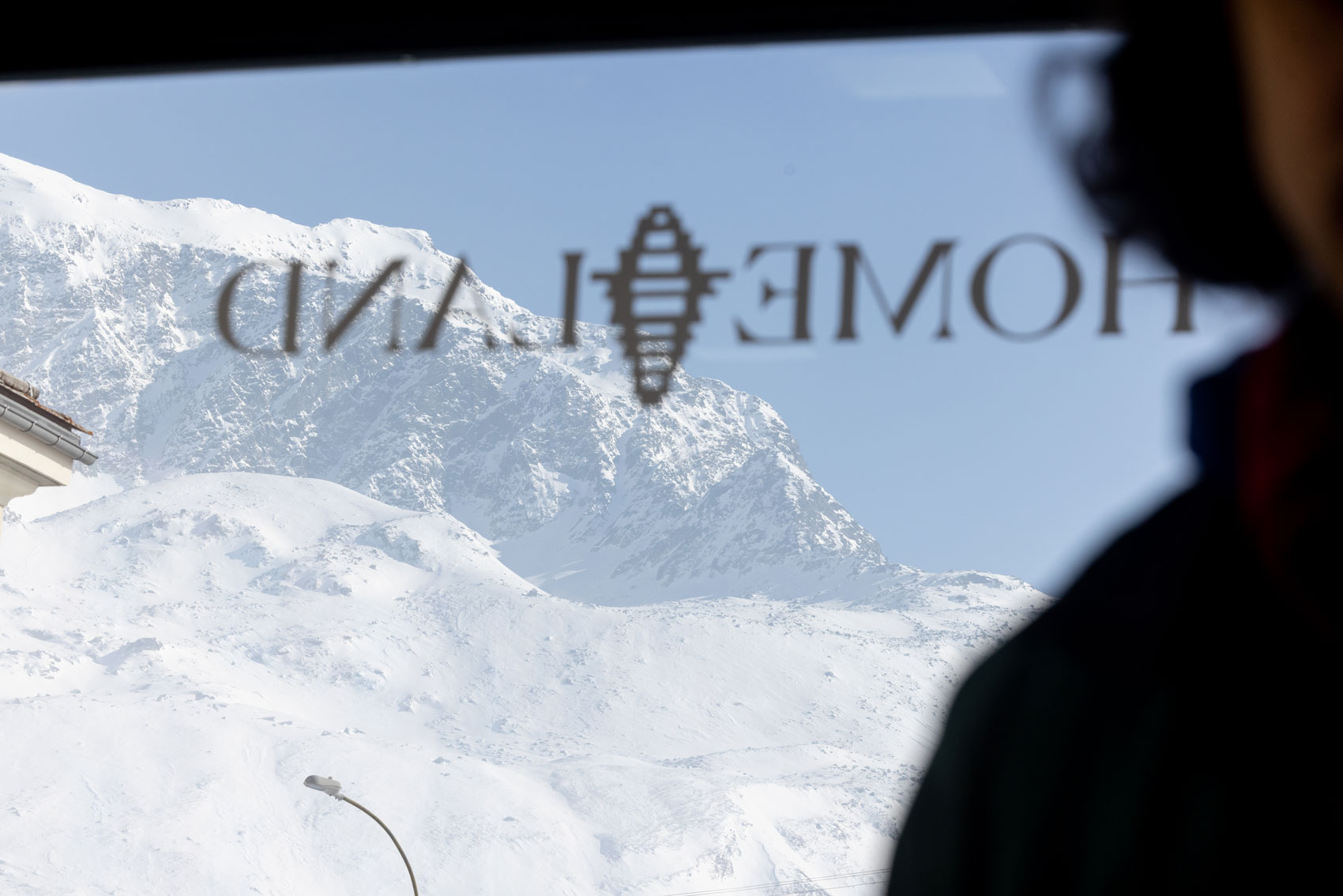
What then is the idea behind Homeland? That of creating a reality, which is first and foremost a physical place, where you can find equipment, but also guides with whom you can take on introductory routes to skialp, or decidedly wild experiences if you already have some basic skills, in a location where there are no ski lifts, so where there is not already a tourism related to alpine skiing. As you approach the Spluga Pass, you will notice that on one side is a large glass container: there, that’s Homeland’s headquarters: if in fact on the website you can consult the program for the entire season, which includes different experiences every weekend, in the physical structure you can rent the equipment, skis and boots for ski mountaineering and splitboarding, but also the safety kit consisting of artva, shovel and probe, and request the assistance of a guide. In fact, the main problem for those approaching skialp is to make themselves autonomous, as much in the ascent as in the descent. When we are not dealing with an area, then with slopes where the level of experience required to tackle them is clearly indicated, but with a mountain where it is up to us to determine the route, learning how to move safely is crucial. The main mission of Homeland is therefore to give the tools to learn how to enjoy the mountains in absolute freedom and safety: the mountain guides, who are the connective tissue of this place, are all highly experienced and, more importantly, were born and raised in these valleys, know them palm to palm, and can use them as a classroom to explain to patrons how to tackle a ski trip. “Avalanches do not exist,” someone says in a superstitious way before leaving, “That word is not said.” It is not said, but it is known in depth: a key part of Homeland’s educational offerings is the safety camp: i.e., the course through which you learn how to analyze the mountain and the weather and snow conditions and how to use and handle artva, shovel and probe, and do hands-on workshops in search and unearth swept. Learning how to master these tools is most important, but it is even more important to prevent an unpleasant situation by equipping yourself with a solid knowledge base: in fact, the key part of the course is about explaining what are the conditions in which snow is safe: learning to recognize where an avalanche might break out is the first step in avoiding it.
Among the many changes that the pandemic and long periods of global confinement have brought about in people, there is also a powerful rediscovery of the relationship with nature. Spending time outdoors is now more of a priority than ever, especially for those who love the outdoors madly but are stuck with work in the city. All-round contact with nature is the core concept of Homeland’s offerings, which, alongside ski mountaineering and splitboarding, offers overnight tenting, complete with base camp construction. In the pages of The Pill you often read about the incredible adventures of mountaineers, explorers and athletes, and you will have repeatedly seen pictures of the base camps from which expeditions depart: whether Nepal, Pakistan or Alaska the vibes are the same: a circle of tents pitched in the snow and surrounded by white or total darkness. The need to sleep in a tent at altitude is usually dictated by the fact that, in order to take advantage of the window of good weather, one must start from the place closest to the destination. Lombardy is not Pakistan, we agree, but Val Loga is a magical place all the same and especially suitable for approaching a night in a tent in the snow for the first time. Digging out comfortable housing, pitching your tent in the right direction, and staking out with sticks or a shovel are all skills that could come in handy should you decide to do a multi-day outing that involves a very long approach route. Not only that, despite the fact that precisely, the Loga valley is a stone’s throw from Madesimo and not in Pakistan, the feeling of sleeping between snow and sky is crazy. The fact that there are no ski lifts has preserved the purity of this place, which is now opening up to a different, responsible, nature-friendly tourism.
